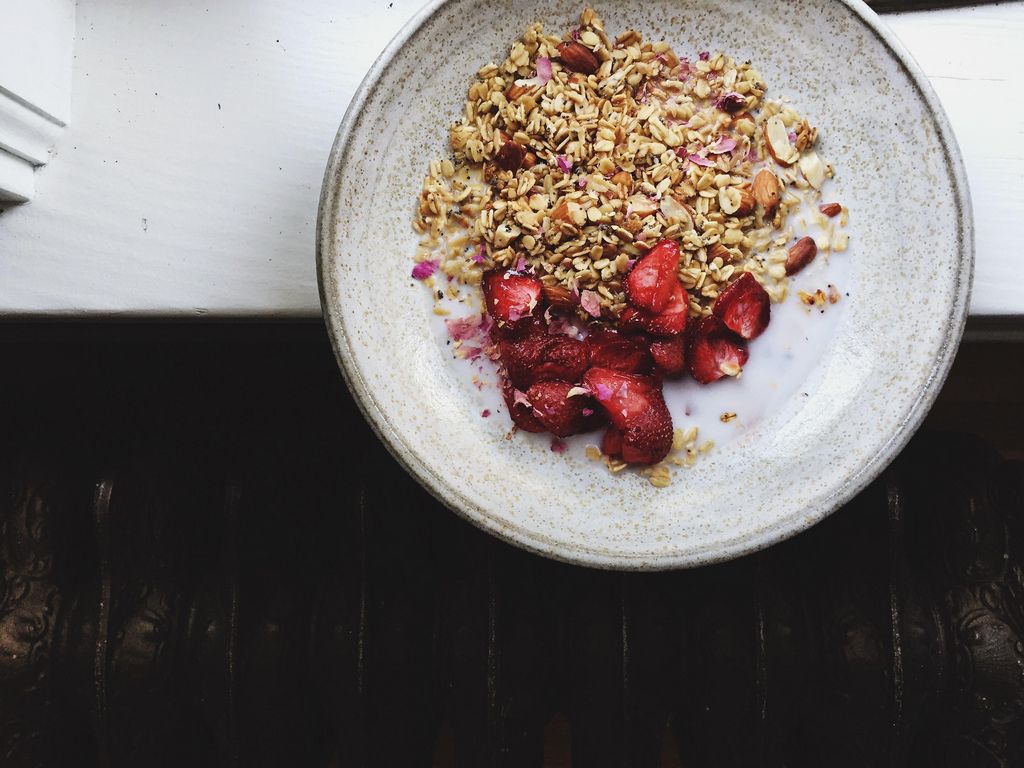Popular on Food52
Continue After Advertisement
6 Comments
Susan W.
July 31, 2015
My kids are all adults but I had two who hated red meat and one who loved it beyond all else. So, scheduling week by week, I made red meat one day, chicken one day, fish one day on alternate weeks and pasta one day. Everyone benefited. In winter, I made a soup or stew with the idea of creating three meals from the basic pot. The first day, whatever the soup was would be served with freshly baked bread. The next day, I might add potatoes and an additional vegetable. On the third day, I would add another veggie and serve the soup over noodles.
Meleyna N.
July 31, 2015
Sides. I try and make sure there is something for everyone, even if someone is only eating one thing. Sometimes one of them only has cucumber salad and rice for dinner, and the other one only has tofu and avocado. It all balances out eventually.
lilroseglow
July 31, 2015
Antonia,
Could not agree more. My kids made their own breakfast and packed their own lunch from a very early age. They used to dismissively talk about their friends who complained about what Mom had packed for lunch, saying "if they don't like what Mom packed then why don't they pack lunch for themselves?" Of course, that meant I had to allow certain leeway in their lunch choices which wasn't always easy. But now that they are older teenagers I'm happy to say they are all confident in the kitchen, and healthy eaters to boot. (They also know how to do their own laundry and clean a bathroom.) ;)
Could not agree more. My kids made their own breakfast and packed their own lunch from a very early age. They used to dismissively talk about their friends who complained about what Mom had packed for lunch, saying "if they don't like what Mom packed then why don't they pack lunch for themselves?" Of course, that meant I had to allow certain leeway in their lunch choices which wasn't always easy. But now that they are older teenagers I'm happy to say they are all confident in the kitchen, and healthy eaters to boot. (They also know how to do their own laundry and clean a bathroom.) ;)
Aran G.
July 31, 2015
Hi Antonia,
That's a great point actually. I'm from the Basque Country and I grew up helping in the kitchen from a young age. Jon does help a lot and he really does help with prep but there are certain things like making tortilla de patatas, which requires frying/poaching potatoes in almost a cup of olive oil. He is still quite young in his abilities to be in charge of tasks like this.
Another factor is time and during the week, it is hard to set aside time for extensive teaching and supervising. But I do agree these are great lessons for our children and I will continue to get them involved in meal preparations.
That's a great point actually. I'm from the Basque Country and I grew up helping in the kitchen from a young age. Jon does help a lot and he really does help with prep but there are certain things like making tortilla de patatas, which requires frying/poaching potatoes in almost a cup of olive oil. He is still quite young in his abilities to be in charge of tasks like this.
Another factor is time and during the week, it is hard to set aside time for extensive teaching and supervising. But I do agree these are great lessons for our children and I will continue to get them involved in meal preparations.
AntoniaJames
July 31, 2015
Aran, thanks for your reply. It sounds like you're doing a great job with your kids! We did a lot of night-before prep, which involved decision-making, identifying as many things ready as we could and then executing as appropriate, etc., while at the same time creating expectations for what would happen in the morning.
For the record, we never did much cooking for breakfast on weekdays! I was busy as a trial lawyer, commuting into town, so we kept it simple during the week but then had a lot of fun on, and limited new skills teaching to, the weekends. (Also for the record, my sons both thrived with and preferred routine, so lunches were not complicated affairs, either.) ;o)
For the record, we never did much cooking for breakfast on weekdays! I was busy as a trial lawyer, commuting into town, so we kept it simple during the week but then had a lot of fun on, and limited new skills teaching to, the weekends. (Also for the record, my sons both thrived with and preferred routine, so lunches were not complicated affairs, either.) ;o)
AntoniaJames
July 31, 2015
This is all rather interesting, but I'm curious: why isn't Jon making his own breakfast every day, and perhaps even helping with Miren's? (I started making my father's eggs for breakfast just about every day when I was that age.) Kids can do so much -- and sooner than many parents think -- plus, they gain so much self-esteem when given responsibility for important family needs.
Is time an issue? What a great opportunity to model / encourage advance planning activities, and to show your children the rewards of thinking ahead.
I'd be interested in your, and other parents', thoughts on this.
;o) P.S. I raised two sons who were given responsibility at a very young age for making both their own breakfasts and their own lunches, and they've turned out to be the most amazing, competent young adults.
Is time an issue? What a great opportunity to model / encourage advance planning activities, and to show your children the rewards of thinking ahead.
I'd be interested in your, and other parents', thoughts on this.
;o) P.S. I raised two sons who were given responsibility at a very young age for making both their own breakfasts and their own lunches, and they've turned out to be the most amazing, competent young adults.



See what other Food52 readers are saying.